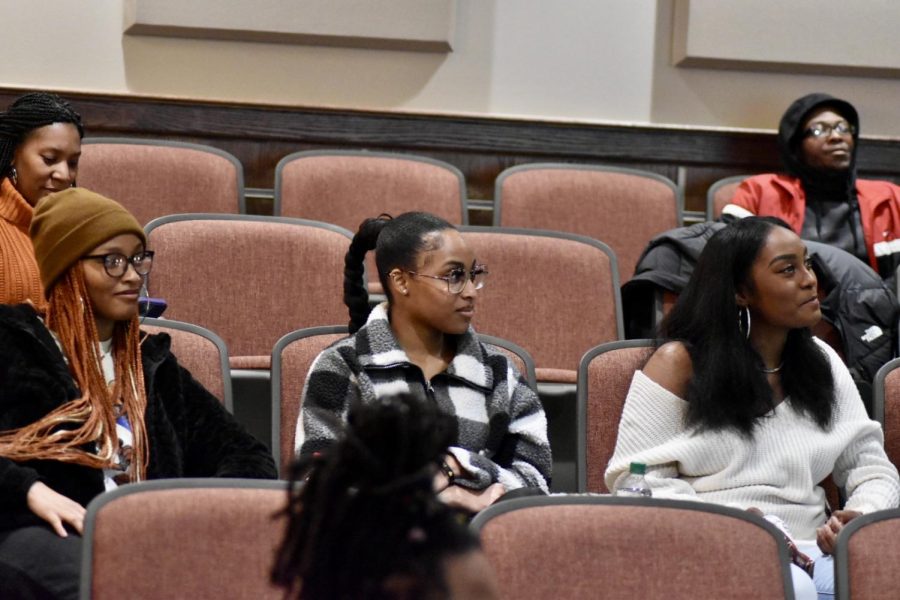Red Table Talk discusses love, toxic relationships
LEARNING TO LOVE: Students join the open discussion and take a test to determine their love language
February 10, 2023
Everyone develops their own version of love and form of communication for their feelings. But when you don’t know what yours is, it can be hard to communicate with a romantic partner what you need. With Valentine’s Day on the horizon, Delta Sigma Theta Sorority provided an opportunity for students to learn more about love and toxic relationships through an open discussion in Bayou Pointe on Wednesday at the Red Table Talk led by licensed mental health counselor Connie Aye. The event focused on identifying warning signs for a toxic relationship and a love language quiz. Aye started with warning signs for toxic relationships such as stalking, abuse and control. She emphasized the importance of everyone knowing these signs because prevention of these traits leads to healthy relationships. Aye also spoke on the importance of putting up boundaries in a relationship and always having clear lines of communication open. “If you don’t like something or want something different, then communicate that,” Aye said. Kaitlin Phillips, president of Delta Sigma Theta, said she was pleased with the turnout. Phillips said love is an important topic for college-age students whose example of love may not be the best. “We have a very influential idea of what love is because of social media, so this is to get real and see what your love language is and see what actual love is,” Phillips said. “It helps to find out what you like and what you’re searching for.” The second part of the discussion focused on a love language test. All participants took one, and afterward, Aye gave feedback on each different love language. She played the mediator role and tested students on what they learned in the first aspect of the discussion by portraying different aspects of toxic relationships through the lens of each love language. For example, when students said that quality time was their love language, Aye asked them if it was okay for their significant other to ask for their location and always show up at places where they were hanging out. Through this exercise, she showed students that it is okay to draw boundary lines and that not everything is justified simply because it falls within someone’s love language. Aye said she was happy to teach college students about love so close to Valentine’s Day, but it was also important to her to speak to her predominately African American audience during Black History Month. “Black history and love—we have some blurred lines because of some abuse and some aspects of slavery,” Aye said. “Those lines between love and abuse get crossed. That’s how some people show love, and they don’t realize there’s a difference.” Aye’s topic was an important one for college students as there is a growing debate regarding the safety of college campuses after the death of LSU student Madison Brooks. While she did not personally know her attackers, about 85-90% of sexual assault victims do, with about half of the assaults occurring on a first date, according to the National Institute of Justice. Aye believes that if more students know how to communicate their love language and their boundaries more efficiently and know the signs of a toxic relationship, many of these abuses can be prevented before they occur.




Connie Aye, Counselor/Psychotherapist • Mar 18, 2023 at 6:04 pm
Thanks for capturing the moment and sharing the information. I greatly appreciate the opportunity to inform the community on a topic that is definitely relevant to the Collegiate population. As a Licensed Mental Health Professional, there is a fine line between Mental Health and Mental Illness and factors that contribute to both.
Connie Aye
Counselor/Psychotherapist
@Cayco Effex, LLC